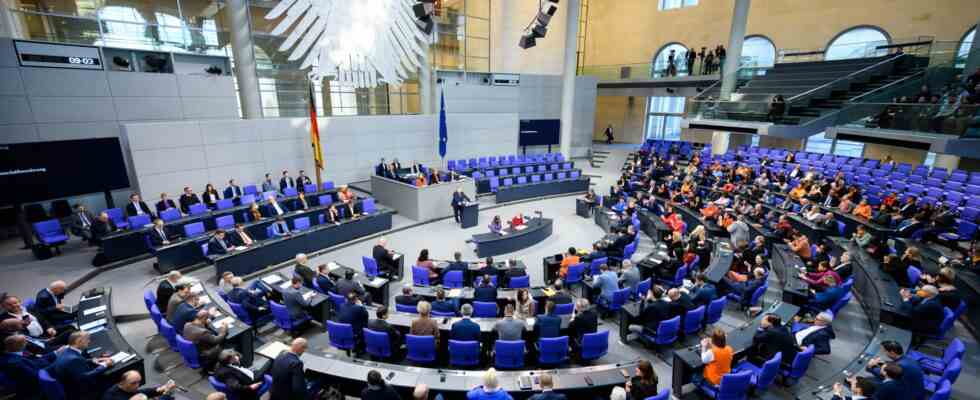comment
Status: 01/17/2023 5:47 p.m
The traffic light draft for an electoral law reform is controversial and could end up before the constitutional court. The plan isn’t bad though. But there is a better solution says Daniel Pokraka – for example larger constituencies.
The traffic light plan is radical, but at least it goes in the right direction. The Bundestag is bursting at the seams and has to become smaller. And the election result, which we see on the screen on election night in the form of bars of different heights, must reflect the majority in the new parliament.
The price for this is that not every constituency winner automatically moves into the Bundestag. It is understandable that the Union does not like this. For the CSU, the traffic light plan, if it had been law in 2021, would have meant that their first vote victories in the cities of Munich, Nuremberg and Augsburg would not have been enough to send MPs to the Bundestag from there.
Excessive choice of words by the CSU
The choice of words, however, with which the CSU complains about the traffic light plan (“organized election fraud” as in “rogue states”, tweets General Secretary Martin Huber) is exaggerated and outrageous – especially since the Union itself is promoting an electoral system that it used in the last election would have made a winner. In contrast, the traffic light proposal is the minor intervention: the balance of power in the Bundestag would be the same as it is today.
A personalized system of proportional representation applies to federal elections. The noun proportional voting right is decisive here – the participle personalized only supplements it and indicates that there are constituencies with direct candidates. The fact that they are elected with the first vote may be responsible for the misunderstanding that this is the more important vote. In reality, it’s the other way around: the second vote, which leads to the election result that we see as a bar on the screen on election night, is the more important one – the voters’ will for the composition of the Bundestag.
Customary law speaks against the traffic light proposal
Because this is the case, it is also justifiable not to allocate a seat in the Bundestag to constituency winners if their party does not have enough second votes to do so. That would usually hit winners who won with 30 percent or less – i.e. for whom 70 percent or more did not vote. In mayoral or district elections, with such a result, you would of course have to go into a runoff against the runner-up – is it enough for the Bundestag? There are good reasons to question this practice.
And yet there is a weighty reason not to let some constituency winners move into the Bundestag – and that is common law. Experts, journalists and lawyers may be able to understand the traffic light plan – most citizens probably not. Even if the first vote is renamed the constituency vote: Whoever ticks this box expects someone from the constituency to move into the Bundestag, just as it always was. A problem of understanding, a problem of acceptance and ultimately possibly: a problem of democracy.
Alternative: Larger constituencies
From the voters’ point of view, the less serious interference in electoral law would be: fewer constituencies. 200 instead of 299, the remaining 400 MPs would come from the list as before. Overhang mandates would thus be very unlikely, and incidentally, the reduction in constituencies would end once and for all the fairy tale that the first vote is more important or just as important as the second vote.
Yes, larger constituencies are also a problem: some are already very large, especially in rural areas, and when constituencies are redesigned, two old MPs would often fight over a new constituency. But that’s not the voters’ problem.
You have to die a death. If you want to reduce the Bundestag to the standard size of around 600 MPs without affecting proportional representation and the existence of constituencies, then larger constituencies are the least of the evils.
Editorial note
Comments always reflect the opinion of the respective author and not that of the editors.

